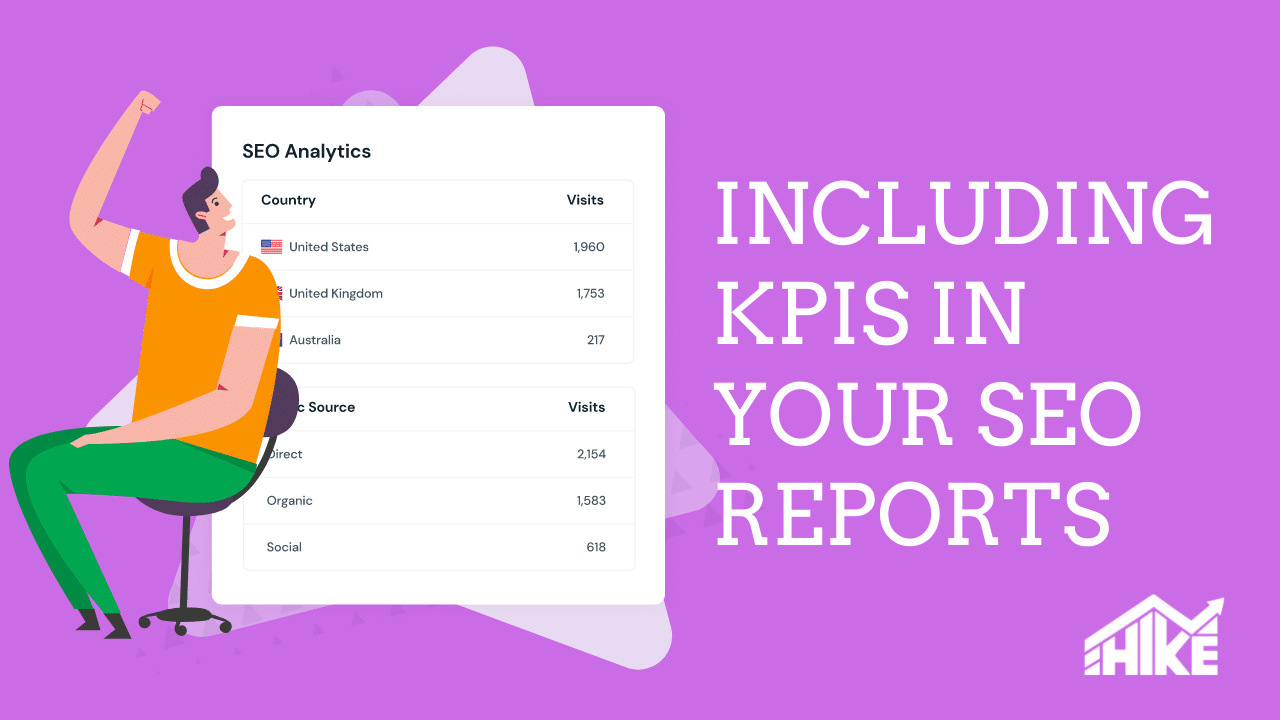Introduction from Hike – this post is the sixth in a series which we’re calling the “Friends of Hike Guest Post Series”. Being a SaaS/marketing company we have friends in lots of different companies, all who expertise in their specialist area. And we want to share their best tips – their best ‘knowledge’ – that can help YOU with your SEO. It’s all about sharing value.
It’s also to demonstrate to our users, and those small businesses/startups, that there are great opportunities for building links to your website if you participate in this ‘expertise sharing economy’. This is exactly what the future of link building looks like, and it’s what Google envisioned as the purpose of links.
Kristen at The Digital Marketing Mom who wrote this post has included a backlink to her site. And we are HAPPY to include it, as she is providing true value to our blog and to our users.
So without further ado, enjoy the sixth guest post in this series…
Before the rise of the internet, you didn’t need to set up keyword alerts or text notifications, and there wasn’t a need for social media monitoring or digital marketing managers.
Now, if you sneeze wrong (especially in the food industries) your business is plastered all over Instagram, Facebook, Twitter, Google Business and Images, Yelp, local news outlets, and many more.
Consider this – According to Forbes, roughly 90% of consumers consult reviews before making a purchase.
Have you thought about the information someone would find about your company if they did a search? Is it positive? Negative? What sort of assumptions can your potential customers make about your business without knowing the whole story?
67% of consumers are influenced by negative reviews online, and as many as 22% of customers may search for an alternative product after finding one negative article in a search. That jumps to 59% with three negative articles.
Don’t risk putting your brand in hot water. Take advantage of the tips below and let your business reputation speak for itself.
Consumers Make Assumptions.
For example: You won a local “Best Small Business” award in 2012, 2013, and 2014. What could your potential customers infer from this information? The first thoughts that come to mind – “They won three years in a row, but it’s 2019. What happened in the last few years?” “What did they do to keep them from winning?” “Who was the most recent winner? I think I’ll go there instead.”
Our brains automatically make assumptions based on what we presently know. If the reviews that people read don’t contain both sides of the story, they’ll make a decision based on the information available to them at that moment.
By only having half of the information present (the negative review), not only does it sway their decision, it influences what they tell their friends and family as well.
You Don’t Always Need to Solve the Customer’s Problem
So you’ve received a negative review. They had a bad experience at your store and want to tell everyone and left a rude comment on your Google Business page. What do you do?
Step 1: APOLOGIZE.
Step 2: Provide a legitimate solution to the problem.
Step 3: Be sincere in your response.
Put yourself in their shoes. They’re upset enough to go out of their way to let the world know about the situation, so don’t brush them off or delete (or hide) the review. Take a moment and offer them a real solution and make an actual effort to make things right.
Potential customers coming and reading a review will see that you legitimately attempted to make amends. They use the information at hand to influence their decision – respond so the next person reading the review can make an educated decision based on the whole story and not make a quick assumption.
Don’t Be Bullied
This is a bit of a tricky situation to navigate, but there are times where it’s acceptable for a business owner and a reviewer to “agree to disagree.” There are situations where the angry customer is going to call out individual staff members or use profanity, but it isn’t ok to let the customer provide false or inaccurate information.
The main piece here is that you need to be able to prove it with hard and irrefutable facts. Not only will it show that you’re involved in the day-to-day aspects of your business, but it also sets a precedent that reviews will be addressed promptly and accurately.
However, if you should take this approach there are a few guidelines to follow.
- Handle the situation professionally, and don’t respond while you’re angry.
- Don’t be accusatory
- Speak respectfully and politely
- Your ultimate goal is to clarify the situation, not alienate a current or future customer.
Claim Your Google Business Profiles
With all of the changes that Google has taken to make Google My Business features more consumer and business-friendly – take advantage of them. Create an account, sign up for review notifications, add coupons, offers, business photos, posts, and more.
Google’s business profiles are now showing up in search queries before indexed web pages, so it’s imperative to make sure you’re managing your digital real estate to its full potential.
With an active profile, you can also respond to reviews, answer questions, and provide your customers with as much information as they desire.
*BONUS* You can receive alerts straight to your phone if you want…
Download the Apps
Google Business, Yelp, Facebook Business – you name it, there’s an app. And luckily, with an app, you have instant notifications and the ability to squash a sticky review situation in real-time. As a small business owner, having these alerts delivered directly to your phone is a lifesaver.
You can take the next steps to investigate the situation and provide your customers with dependable service that can redeem you in the eyes of potential customers, as well as make you stand out in a more positive light when compared to your competitors.
Your reputation can be your biggest threat or your easiest selling point. Make it easy on yourself – keep your eyes open, your notifications on, and your responses sincere.
Author bio: Owner and chief consultant of The Digital Marketing Mom, Kristen Shinaver uses a combination of psychology, digital marketing, and public relations to facilitate a bond between brands and their customers, manage reputations, and optimize digital presence.



